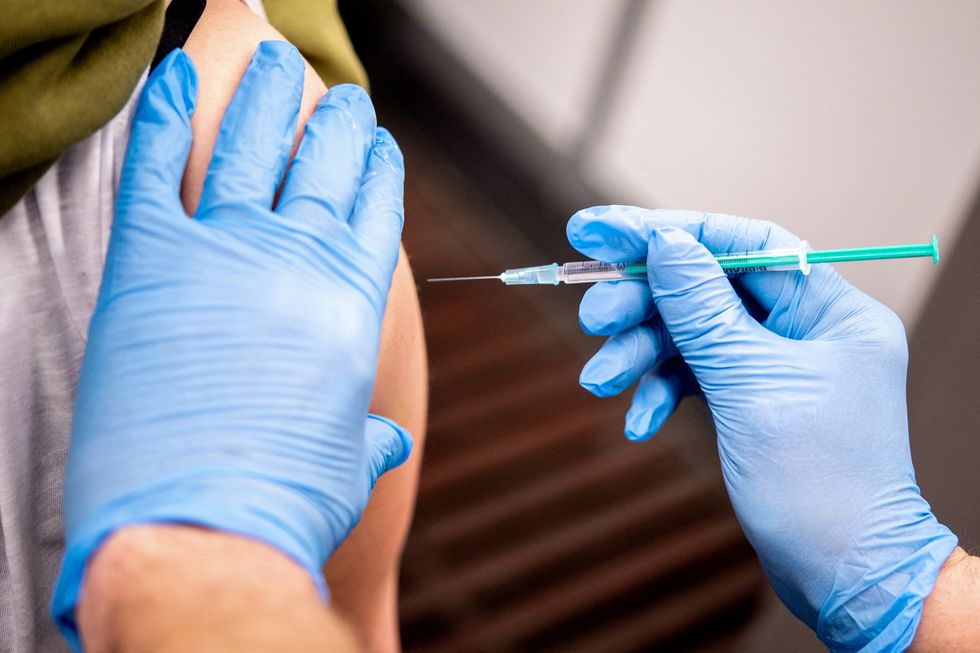Did you feel hot after getting the Covid vaccine? Scientists find the signs show up six months later

- Symptoms post-vaccination generally indicate a robust immune response
- Hot temperature found to be an indicator of high antibody levels six months later
- Unpleasant vaccine symptoms outweigh the risks posed by Covid, researchers say
Don't Miss
Most Read
Latest
If your skin felt a tad warmer following the second dose of the Covid vaccine, do not fear.
Temperature increases and other symptoms post-vaccination signify that your immune system was being activated and the signs of which can be present in the body six months later, according to a new study.
The findings deepen our understanding of the long-term effects of an intervention that was rolled out at speed in the face of a global emergency.
With the world enrolled in an experiment, fears over the efficacy and safety of the vaccines were not unfounded.

The higher the number of symptoms post-vaccination, the greater the antibody levels, researchers found
|Getty Images
Couple this with anecdotes of particularly severe responses to getting vaccinated, and many people opted for getting Covid over the vaccine that offered protection against it.
There are two reasons why this is wrong-headed.
A substantial body of evidence shows that the risks posed by Covid far outweigh the risks posed by vaccination: adverse events are extremely rare.
And, as this new study proves, the greater the number of symptoms, the greater the protection conferred by vaccination.
The study, which appears online June 10 in Annals of Internal Medicine, is based on symptom reports and antibody responses from 363 people, who had the Pfizer-BioNTech or Moderna mRNA vaccines when they were first introduced.
After the second dose of the vaccine, the researchers found that those with seven or more symptoms had nearly double the antibody levels of those who did not have symptoms. The participants were mainly in their forties to sixties and had not had the virus.
About 40 percent of the people in the study also wore a device to monitor their temperature, breathing and heart rate. The researchers found that those whose skin temperature increased by one degree Celsius after the second dose had three times the antibody levels six months later, compared to those whose temperature did not increase.
"Generally, we found that the higher the number of side effects, the higher the level of antibodies,” said first author Ethan Dutcher, MD, PhD, a postdoctoral researcher in the UCSF Department of Psychiatry and Behavioral Sciences, and the Weill Institute for Neurosciences. “But this wasn’t a hard rule: some people without side effects had better antibodies than some people with side effects.”
- A nutritional deficiency could be driving global violence
- Food item that likely caused E. coli outbreak revealed
- New treatment slashes risk of cancer returning

As the virus has evolved and fatality rates have fallen, many people are underestimating its impact
|Getty Images
As the virus has evolved and fatality rates have fallen, many people are underestimating its impact. “The toll of Covid is still high for some – sickness, lost work, lasting fatigue and the dreaded long Covid,” said co-senior author Elissa Epel, PhD, a vice chair in the UCSF Department of Psychiatry and Behavioral Sciences. “While the symptoms from vaccination can be very unpleasant, it’s important to remember that they don’t come close to the disease’s potential complications,” she said.
“With COVID-19 vaccines likely here to stay, identifying what predicts a strong antibody response will remain important,” said co-senior author Aric Prather, PhD, professor in the UCSF Department of Psychiatry and Behavioral Sciences.
With that in mind, the NHS is recommending the British public roll up their sleeves and get their spring booster shot.
You or your child may be offered a spring COVID-19 vaccine if you:
- Are 75 years or over (you need to be 75 years old by 30 June 2024)
- Are six months to 74 years old and have a weakened immune system
- Live in a care home for older adults










